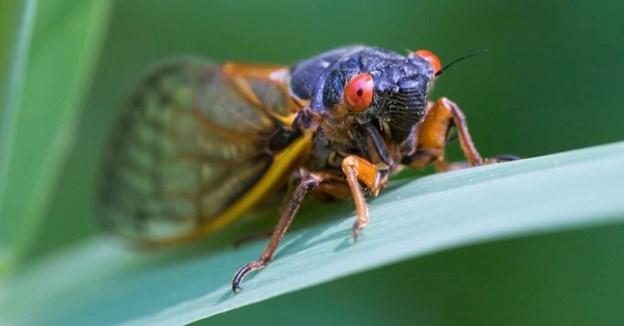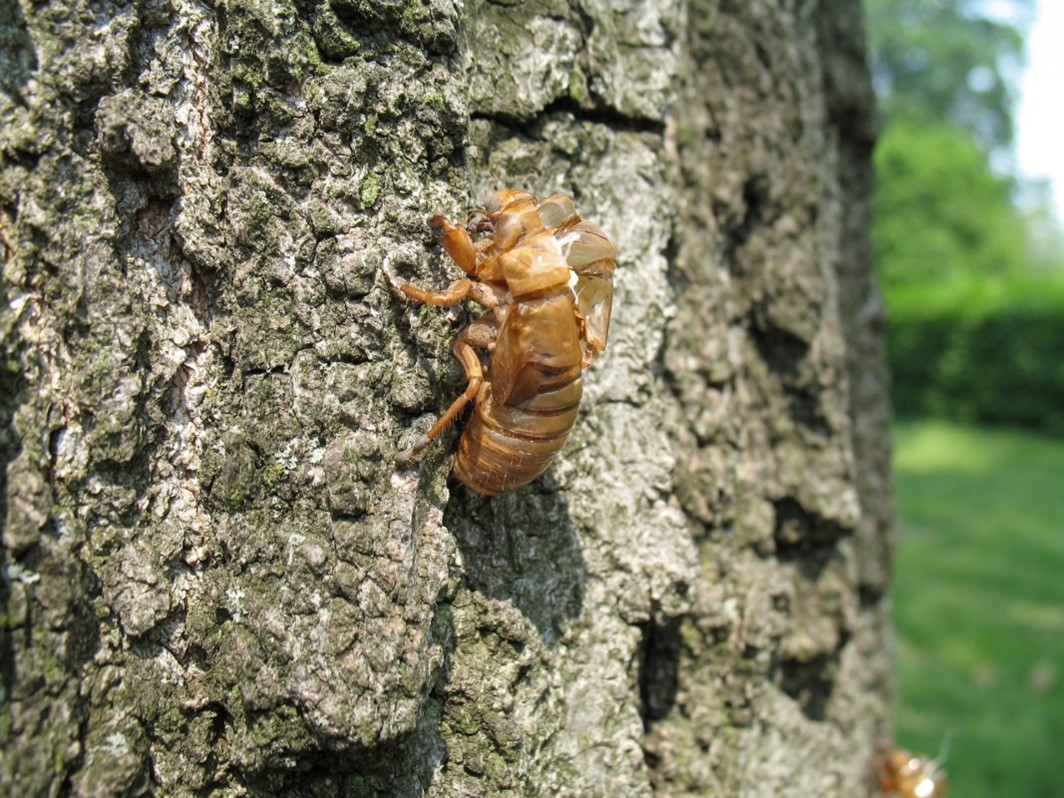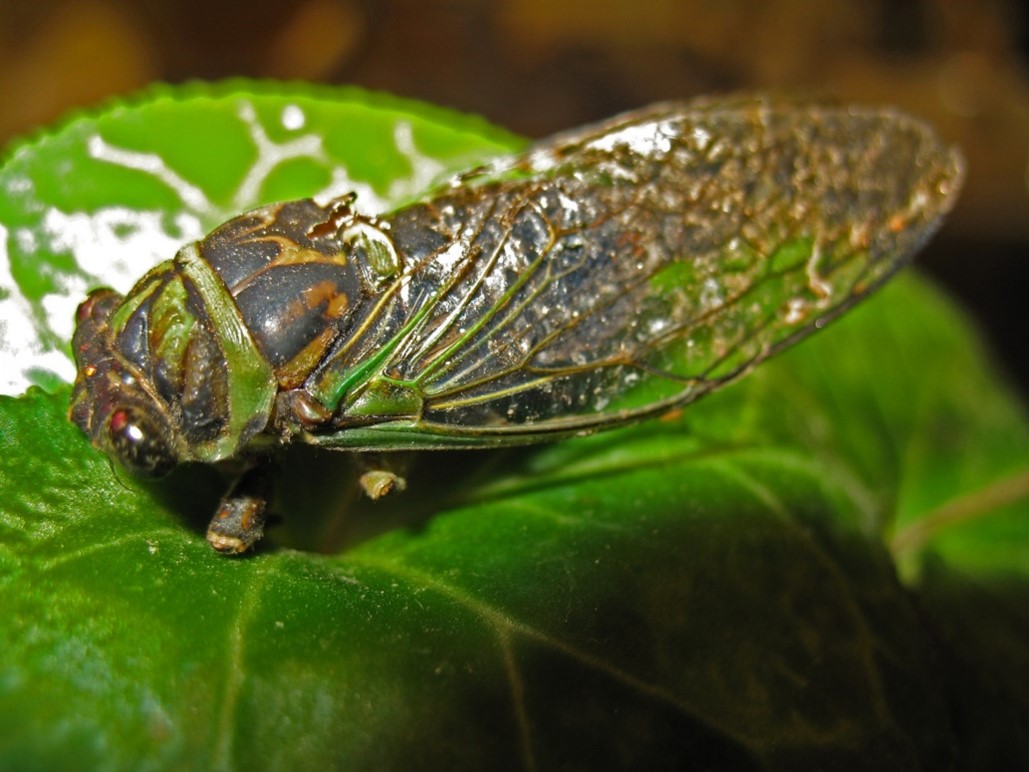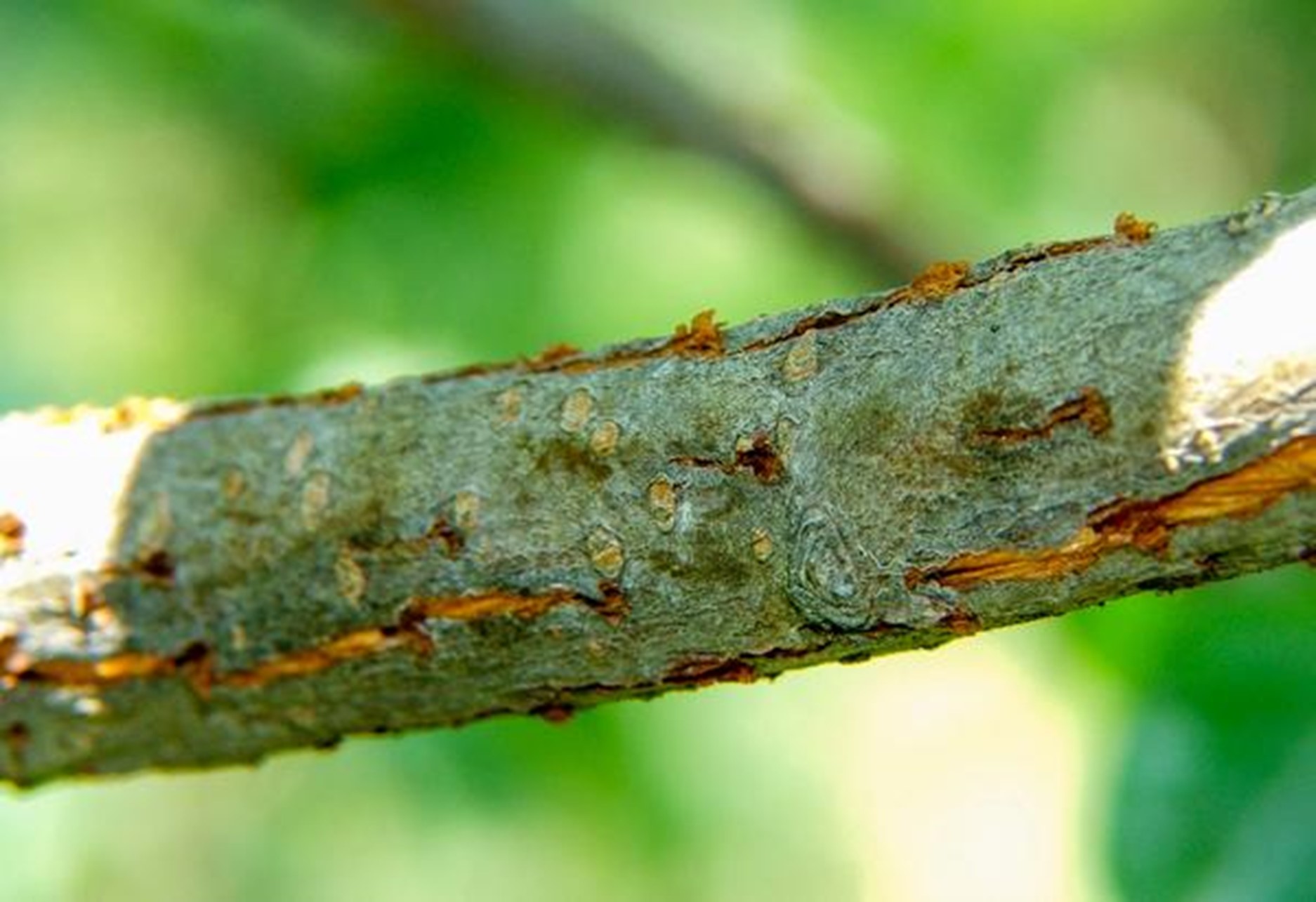By: Christopher Worst, Urban Forestry Coordinator
Cicadas in Texas
What is that loud sound coming from the trees? Most likely it is the song of cicadas, a symbolic sound of summertime. Cicadas are a common insect in North America.
Where Are Cicadas Located?*
Australia and New Zealand – several hundred species
Africa – about 150 species
North America – over 170 species
South and Central America – at least 800 species
Asia and the Pacific Islands – over 200 species
Europe – a few species, with only one in England
Why do cicadas make such a loud noise?
Cicadas make noise for two reasons. One reason is to scare off predators, and the second and most common reason is to attract a mate. Males are the only ones that sing, normally non-stop during the warmest parts of the day until a mate is found.
What do cicadas look like?
The cicada is an insect with six legs and see-through wings with orange veins. The abdomen's colors can be orange, black, or orange with black stripes. The Thorax, or center part of the body, is typically black. A unique feature is the insects’ bright red eyes. Two common species found in Texas are the annual cicada (about ¾ of an inch in length) and the giant cicada (about 2 ¼ inch in length).
Are cicadas harmful to trees?
On larger mature trees, cicadas do very little damage. Any damage at all happens on smaller branches or twigs within the canopy when the females lay their eggs. They create little cracks within the twig or branch and lay eggs underneath the bark. When the eggs hatch, the larvae drop to the ground and burrow to live until the next stage of life. Cicadas should only cause concern if you are seeing a large population of them in a young tree or fruit tree. Too many cracks throughout a tree can put it into stress and invite other insects or diseases to inhabit the young tree or fruit tree. If cicadas are a common issue for young trees in your area, the best way to prevent the damage is to cover the tree with a netting with holes too small for the cicadas to get through. Spraying is ineffective in keeping cicadas away.
Another important thing to note is that Cicadas are harmless to humans. They neither bite or sting.
Are there any benefits of cicadas?
Cicadas are an excellent food source for birds and other predators.
When the larvae hatch from their eggs and burrow into the soil, this helps aerate, de-compact, and improve water filtration in your soil.
When cicadas grow out of their shells into their last phase of their life cycle, the shell left behind is an excellent source of nitrogen for your soil. When they decompose, their bodies also help replenish nutrients into the soil.
*Source: https://a-z-animals.com/blog/where-are-cicadas-located/




